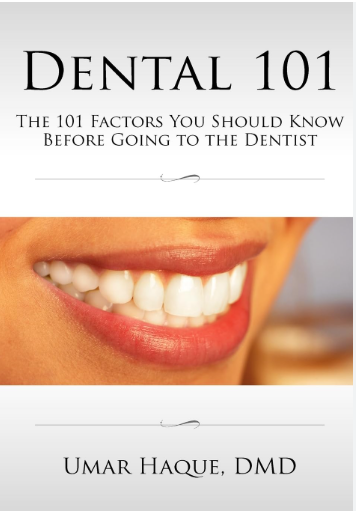Introduction
Maintaining good oral health is crucial to overall well-being, but many people, especially beginners, may find themselves overwhelmed by the wealth of dental information available. Whether you’re just starting to take care of your teeth or are looking to learn more about dental health, this guide will provide you with essential basic dental knowledge. We’ll cover everything from proper oral hygiene practices to common dental treatments, helping you build a solid foundation for a healthy smile.
1. The Importance of Oral Hygiene
One of the most fundamental aspects of dental health is maintaining proper oral hygiene. Brushing your teeth at least twice a day, flossing daily, and using mouthwash are vital practices for keeping your mouth clean and preventing dental problems like cavities and gum disease.
- Brushing: Choose a soft-bristled toothbrush and fluoride toothpaste. Brush your teeth for at least two minutes, making sure to clean all surfaces of your teeth and gums.
- Flossing: Flossing helps remove food particles and plaque between your teeth where a toothbrush can’t reach. It’s essential to floss once a day, preferably before bedtime.
- Mouthwash: Using mouthwash after brushing and flossing can help reduce bacteria and freshen your breath. Opt for an alcohol-free mouthwash to avoid drying out your mouth.

2. Common Dental Problems and How to Prevent Them
Understanding common dental issues can help you take steps to prevent them. Here are some of the most common dental problems:
- Cavities: Cavities, or tooth decay, occur when bacteria in the mouth produce acid that erodes tooth enamel. To prevent cavities, limit sugary foods and drinks, brush your teeth regularly, and visit your dentist for check-ups.
- Gum Disease: Gum disease, or periodontal disease, affects the tissues surrounding your teeth. Early signs include bleeding gums and bad breath. Regular brushing, flossing, and professional cleanings help prevent gum disease.
- Tooth Sensitivity: Tooth sensitivity can be caused by worn enamel, gum recession, or cavities. Using a toothpaste designed for sensitive teeth can help alleviate discomfort.
3. Regular Dental Check-Ups
Visiting the dentist regularly is crucial for maintaining good oral health. Your dentist will not only clean your teeth but also check for signs of tooth decay, gum disease, and other oral health problems. Typically, it’s recommended to schedule a dental check-up every six months, but your dentist may suggest more frequent visits based on your individual needs. View more on Google
4. The Role of Diet in Oral Health
What you eat plays a significant role in your dental health. A healthy diet supports strong teeth and gums. Here are some dietary tips for better oral health:
- Calcium: Foods rich in calcium, such as milk, cheese, and leafy greens, help strengthen tooth enamel.
- Vitamin C: Citrus fruits, strawberries, and peppers provide vitamin C, which is essential for healthy gums.
- Limit Sugary Foods: Reducing your intake of sugary foods and drinks can prevent cavities. If you consume sugary items, try to brush your teeth afterward.

5. Dental Treatments You Should Know About
While maintaining oral hygiene is key to preventing dental issues, there are various treatments that dentists offer to address specific concerns:
- Fillings: If you have a cavity, your dentist will remove the decayed part of the tooth and fill the cavity with a material like amalgam or composite resin.
- Crowns: Crowns are used to restore a tooth that is damaged or decayed beyond the point of a filling. They fit over the tooth to restore its shape, size, and function.
- Root Canals: When the pulp of a tooth becomes infected, a root canal may be necessary to remove the infection and preserve the tooth.
- Braces: Braces are used to straighten teeth and correct misalignment. They can be made from metal or ceramic and work by gradually shifting teeth into the desired position.
6. Tips for Maintaining Healthy Teeth Long-Term
Here are some essential tips to ensure that you maintain healthy teeth throughout your life:
- Avoid Tobacco Products: Smoking or chewing tobacco can lead to gum disease, tooth decay, and oral cancer.
- Wear a Mouthguard: If you play sports or grind your teeth at night, a mouthguard can help protect your teeth from injury or damage.
- Stay Hydrated: Drinking water helps wash away food particles and bacteria, keeping your mouth hydrated and preventing dry mouth.
Conclusion Basic Dental Knowledge
Good dental care is essential for maintaining a healthy smile and overall health. By practicing proper oral hygiene, understanding common dental problems, and seeking regular dental check-ups, you can significantly improve the health of your teeth and gums. Remember, it’s never too late to start taking care of your oral health—starting with the basics can go a long way in preserving your smile for years to come.
Call to Action Basic Dental Knowledge
If you’re a beginner in dental care or want to improve your oral hygiene routine, schedule a visit to your dentist today. They can provide personalized advice and help you keep your smile healthy and beautiful.
Learn more about dental books

